Trying to figure out the best digital products to sell online? 🤔
While many people focus on display ads and affiliate marketing as website monetization strategies, selling digital products has rapidly grown to become one of the most lucrative ways to monetize your website.
You can use digital products as a standalone strategy or you can combine them with display ads and affiliate marketing to build diverse revenue streams.
But what are the best digital products to sell online?
➡️ In this post, we’re going to share a bunch of ideas, starting with looking at the most popular digital products that are being sold online.
➡️ We’ll then shift our focus to only the most unique and profitable digital products to sell online so that you can walk away from this with some actionable advice.
➡️ To cap it all off, we’ll provide a roundup of the best platforms to sell digital goods to give you some options to get the ball rolling.
The most popular digital products to sell online (based on data)
According to data from merchants using Easy Digital Downloads (a platform for selling exclusively digital items), these are the most popular digital products to sell online [1]:
- eBooks 📱
- Software 💿
- Applications 💻
- Digital artwork and graphics 🎨
- Templates for cloud design platforms ☁️
- Fonts ✍️
- Audio clips and music 🎧
- Photography 📷
- Video 📹
- Documents 📋
- Spreadsheets (e.g. a Sheets document to achieve some goal) 📝
- Courses 👨🎓
- Professional services 🔧
- Tickets 🎫
So, that gives you an idea of the general areas in which creators make money with digital products online.
But is that enough information? Not really.
We know any old eBook won’t sell well; photography is an incredibly tough market; software could range from anything from B2B content management to golf course tee sheet software.
So, where do you start?
The most unique and profitable digital products to sell online
Well, that list from Easy Digital Downloads is a wonderful place to begin, but we must dig deeper.
That’s why, in this article, we’re taking it beyond general “categories” and “product types” to explore some unique, high-profit, in-demand digital products to sell online.
In fact, we have tried to ensure that each digital product on our list has the following characteristics:
- Requires special knowledge, but is easy enough for most creators to become experts.
- Unique (not just the usual “how to make money online” eBook).
- High-demand (is there an industry or group of hobbyists that always needs a particular digital product?).
- Problem-solving (since it’s much easier to sell digital products that solve problems than it is to sell entertainment).
1. Photo-oriented eBooks about health, diets, or pets
One way to stand out in a crowded eBook market is by creating visually beautiful books that incorporate heavy usage of photos, illustrations, or graphic designs.
These visually oriented eBooks usually require multiple skills and, therefore, don’t have as many people competing for the space: a vegan cookbook with tutorial pictures requires photography, writing, and cooking skills.
To narrow the niche even further, consider smaller niches that have rabid followings and could benefit from beautiful imagery:
- Health: Give readers visual cues and step-by-step workouts; present self-healing methods; take pictures of edible plants and explain their healing benefits.
- Diets: Cookbooks and pictures make a perfect pair, but it’s essential to stand out with a niche. Think of diets like gluten-free, ketogenic, intermittent fasting, and Paleo.
- Pets: Show visual tutorials for dog training, cat care, aquarium building, and teaching birds to speak.
Finally, a huge benefit is that all of these visual eBooks convert nicely into physical products to sell, too!
Example
Kyra Sundance, of Domorewithyourdog.com, sells a highly successful collection of eBooks (and physical books) about dog tricks, games, and general training.

Her book 101 Dog Tricks features thousands of photos to complement the actual tutorials provided.

2. Digital artwork made specifically for merchandise sellers
With the rise of dropshipping and print-on-demand, online merchants have a need for designs; not just any old designs, but those specifically made with merchandise in mind.
You may think it’s possible to slap any graphic design on a t-shirt or mug, but that’s far from the case. Merchandise designs have specific requirements:
- Colors must be bright.
- Embroidery products can only have one or two colors in them, and the designs can’t have too much detail.
- Print files must be high resolution.
- You often need to provide multiple image file formats like JPEG, PNG, and vector (for editing).
- DPI (dots per inch) is a massive deal in printing. More dots mean a sharper print.
- They usually require transparent backgrounds (except for direct to garment prints).
- The colors can’t clash with the material’s shade.
The idea is to create merchandise design templates to sell on marketplaces and your website. Better yet, design for specific industries.
Example
The Vector Lab has evolved into such a successful business that you can find its designs in many merchandise stores you enter at National Parks, amusement parks, and local breweries.

They sell affordable, stylish design bundles for sellers to customize for their own brands and put on merchandise.
3. Curated audio clips for unique environments
From meditation to remote working, people want to listen to particular music to get in the mood, focus, or regain their energy.
Here’s the rub: There’s an endless amount of free (YouTube) or cheap (Spotify) music available online.
However, free music is rarely curated for specific environments. You can find some on YouTube, but they’re chopped up by ads, often hit-or-miss in quality, and they rarely offer more than a few hours before you must search for another clip.
Curation is the key here. As is a niche environment, like:
- Meditation
- Yoga
- Writing (or other work that requires non-vocal music)
- Sleeping
- Studying
- Power lifting
- Running
- Dancing
- Biking
- Anxiety
- Cooking
The list goes on and on.
Example
The Calm app sells a subscription with many elements, but one of its key components is curated music for sleep and meditation.

4. 3D models for real estate, architecture, and engineering
If you’ve recently purchased or hunted for a home, you may have seen new technologies like digital staging and 3D interior models. These models are surging in popularity due to their impeccable detail, interactivity, and relative affordability compared to walking through an entire building and filming every inch of it.
Many 3D models are entirely customized for their projects, but many professions use models, or templates, to get started. If you have the design skills, 3D models are wonderful digital products to sell online, especially to:
- Game designers
- Architects
- Engineers
- Real estate agents
- Some eCommerce brands
- Digital artists
- Advertisers
- TV and film directors/editors
Example

Shutterstock’s Turbosquid marketplace is filled with independent designers selling 3D models of buildings, landscapes, cities, and even more specific 3D models like automobiles, body parts (for medical fields), furniture, and technology.
5. Courses that help people understand societal shifts (like cryptocurrency)
The online course market primarily caters to those trying to gain skills. And that makes sense, considering a “course” is, most often, a learning experience.
Yet, there’s a part of the equation missing. There are several highly successful online teachers who focus on “understanding” rather than mastery or expertise.
Many of these online courses teach to the senior community, but there are other niches like travelers, ex-pats, or simply curious people who want a basic understanding of a topic.
These courses tend to cover societal shifts or entirely new/foreign technologies, ideas, or even topics that are interesting but not understood by the public.
Some examples include:
- Cryptocurrency
- Computers
- Mobile technology, Bluetooth, Wi-Fi
- Job markets (especially for people who have been out of the market for a while)
- Social media platforms
- Gaming
- Basic fashion
- Global warming
- Socioeconomic disputes
- Cultural norms
- Politics
- The sharing economy
- Online banking
- Digital music
- Digital cameras
- Artificial intelligence
- Stem cell technology
Example

Alexiei Dingli sells a successful online course on Udemy that helps school teachers gain a better understanding of artificial intelligence. This way, those same teachers can turn around and have intelligent conversations with their students about AI and AI tools or even teach about the topic.
Remember, these types of courses are not about mastery, but understanding. The Artificial Intelligence (AI) in the Classroom course doesn’t strive to make its students expert AI programmers; it’s meant to help them feel more comfortable with the subject.
Advantages of selling digital products over physical ones ✅
We can’t say for certain that finding digital products to sell online renders more profits than physical ones. However, we can look at the benefits of digital products to show that they’re often less risky, lower stress, and provide potential for higher profits.
Here are the main benefits of selling digital products online:
Desirable profit margins
With low upfront costs and minimal overhead, most of the money goes to you after each sale. The main thing you give up is the initial time required to make the digital product to sell online.
Wider market of customers
People tend to purchase digital products when they can’t afford something, or when it doesn’t make sense to spend a lot of money on something like in-person training or customized design. Therefore, you’re opening up your sales to the masses, not just those who can afford pricey services.
You stop trading time for money
Selling a service is a great way to earn money online, but it means your livelihood is tied to time. Digital products sell on their own, even if you’re on vacation, get sick, or go to the bathroom.
Lower startup and overhead costs
Digital products don’t require warehouses, shipping fees, or employees to pack and pick them up.
Easy scaling
You can expand your business without worrying about many extra costs, since much of it relies on software.
Inventory never goes to zero
You only need one file, but can sell the thing thousands, or even millions, of times.
Instant delivery
Customers wait for an email or download link, and that’s it.
High potential for automation
From automated welcome emails to receipts that send out coupons, digital products make for wonderful passive income.
Flexible pricing options
Sell bundles, tiered packages, subscriptions, recurring memberships, and even highly priced lifetime sales.
Potential downsides of selling digital products online 🙅
With all good things, there are always downsides. Although we recommend seeking digital products to sell online, you must keep some disadvantages in mind:
There are some ongoing fees
It’s not entirely free to sell digital products. You must pay for necessary software to build the digital goods (like Photoshop for design or Ulysses for an eBook), and there are marketing and sales costs like hosting, domain names, payment processing fees, and customer support.
There’s typically ongoing maintenance
Customer support is one area of maintenance that digital product sellers often forget about. But you should expect to receive emails from your customers. In addition, you’ll probably have to update the digital products regularly: for example typos and outdated information in eBooks, or if you create an entire online course about Shopify, but then they go ahead and change the whole interface.
Piracy is a threat
There are tools to prevent people from stealing your work, but it’s never foolproof. Much like ecommerce fraud, this is a risk that comes with selling online, so you should get the right tools to protect your work, and minimize any emotional responses when it does inevitably happen. Furthermore, think about having some sort of legal help on-call, just in case you need to take action.
Free content is also a threat
From YouTube to pirated content, and free blogs to open-source software, you must constantly answer this question for customers: “Why would I pay you if I can get it for free somewhere else?” Luckily, you’ll have a nice selling proposition and a unique product.
You can’t sell digital products everywhere
Many marketplaces have restrictions or all-out bans on digital products. It’s usually for a good reason, considering some marketplaces are only meant for in-person sales, or they don’t have the fraud protection in place for digital sales. For instance, Craigslist prohibits all sales of digital downloads. As does Facebook Marketplace (most social sites do). You’ll also find restrictions on places like eBay and Amazon. It’s not all doom and gloom though. We’re going to share with you the best places where to sell digital products in the next section below.
Where to sell digital products
Once you decide upon which unique digital product to sell, you’ll need a reliable platform to do it. The following three happen to be among the best at building, showcasing, distributing, marketing, and selling different types of digital downloads.
Shopify

Shopify is the go-to option when you’re looking for a simple way to create a full-fledged online store to sell your digital downloads.
It’s structured as a one-stop-shop for building, managing, and growing all sorts of online businesses. You can register your domain, get hosting, create a digital product store from pre-built website themes, market the store, manage your orders, etc – all in one place and all without using any technical skills.
What makes it one of the best platforms to sell digital goods is its App Store, which offers thousands of apps that function as extensions to its platform. As you can imagine, with a selection that wide, you’re bound to find an app that supports whatever unique digital product you decide to sell.
For example, online tutors can use Shopify apps like Courses and Thinkific, both of which provide tools for setting up, managing, and distributing eLearning content. Musicians can access the Single Music app, while complex digital goods would fair well with SendOwl and the like.
Pricing 💰
The most popular Shopify plan (Shopify Basic) costs $39 per month (or $29 when you sign up for a full year). However, you can get started for as little as $5. The catch is that you’ll only be able to sell digital products online via social media and messaging apps.
With Shopify Basic, you’ll be charged 2.9 percent + $0.30 on every credit card transaction (the rate is slightly cheaper with higher-priced plans). And, you can try Shopify for free for three days (no credit card required).
WooCommerce
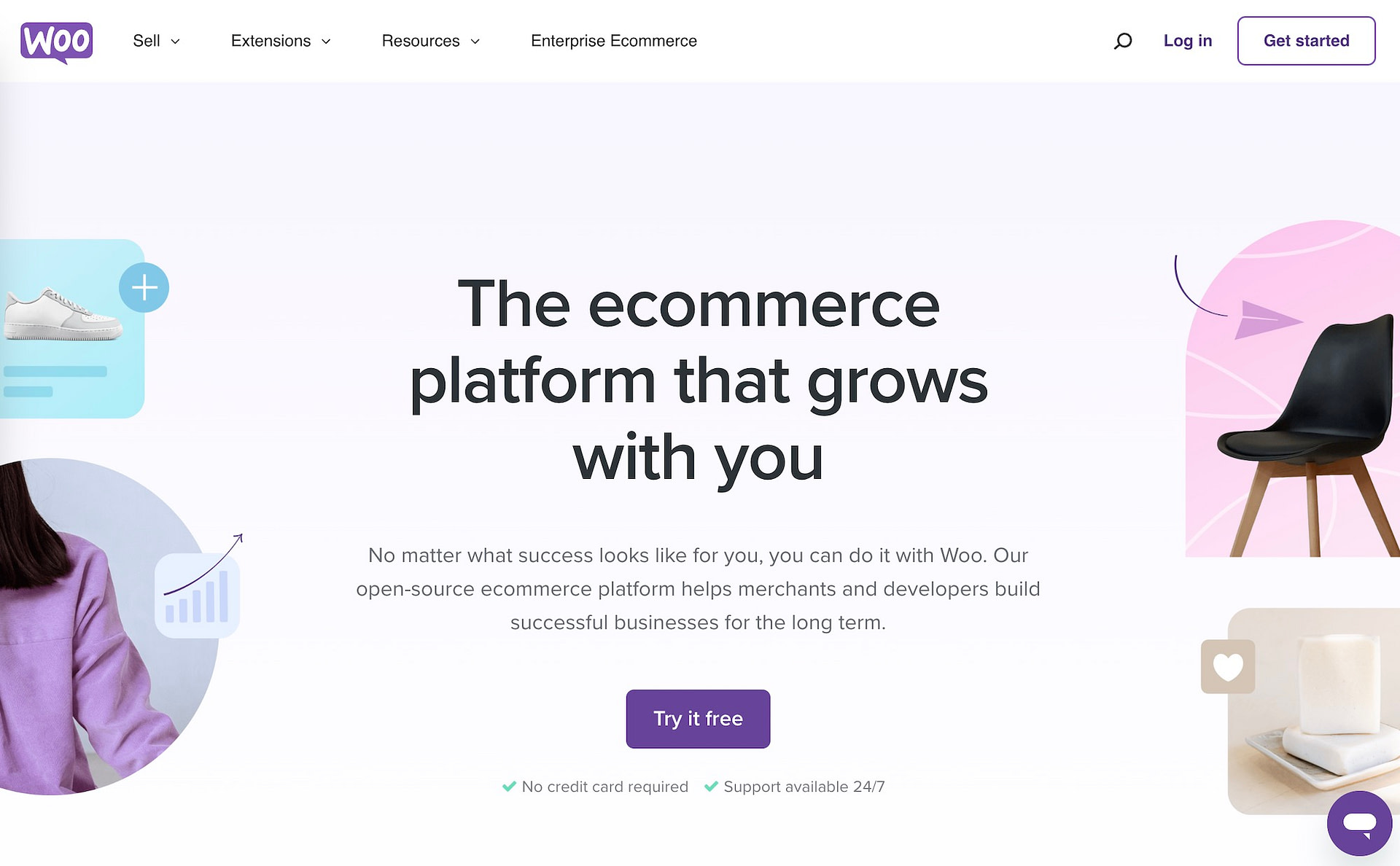
If you’re looking to sell digital products online while keeping costs low, WooCommerce is an excellent option. The core plugin is free and open-source, since it’s meant to work with WordPress. So, if you run a WordPress website, you can use the tool to get ecommerce functionality directly in your dashboard.
It’s also possible to extend the platform with a variety of free (and paid) extensions. For instance, you can integrate quality payment gateways with the Stripe and Square extensions.
Meanwhile, WooCommerce makes a great choice for selling all types of digital products, including subscriptions. This is super easy to set up in the platform using Woo Subscriptions. Plus, you can find options to create product bundles and product add-ons (for upselling and cross-selling).
If your download has options, you can configure variable products to speed up your workflow. Additionally, you’re able to set download limits and expiration dates for your products. And, you can sort downloads using tags and categories to help visitors quickly find what they’re looking for.
Better yet, you can design a completely unique storefront using a dedicated WooCommerce theme. This way, you can build beautiful product pages and checkout pages that are optimized for selling digital products.
Pricing 💰
As we discussed, WooCommerce is a completely free platform which you can access when you set up a WordPress website (also free). However, you’ll require a web hosting provider to store your website files.
Fortunately, there are plenty of quality WooCommerce hosting options with affordable monthly rates. For example, Bluehost offers WooCommerce hosting packages from $9.95. Meanwhile, you can set up hosting with SiteGround from $2.99, or GreenGeeks from $2.95.
Etsy

Although the platform also has physical products for sale, there is plenty on offer from the realm of digital goods. So much so in fact, that in many ways Etsy can be thought of as the Amazon.com of the most profitable digital products. Their expansive marketplace connects online merchants to a global audience of nearly 100 million buyers per year, who in turn make purchases worth $13.5 billion [2].
You just need to sign up as a vendor, set up an Etsy-hosted storefront, and add your inventory. Etsy will then handle order fulfillment on your behalf.
The best digital product examples on the platform include craft patterns, fonts, WordPress themes, eBooks, checklists, social media templates, business cards, journals, logos, worksheets, graphics, and printable artwork. Etsy essentially tries to help you monetize your passion by selling self-created digital goods.
The limit for your digital downloads is about 20 MB per file. But, you’re free to upload a wide range of file types – including .txt, .zip, .ePUB, .iBook, .stl, .mp3, .mpeg, .psp, .rtf, .bmp, .doc, .gif, .jpeg, .mobi, and .mov.
Pricing 💰
It’s free to create an Etsy account and set up a storefront, but there are fees associated with listing and selling downloadable items. You’ll pay $0.20 for every product you list, and when you sell a product, you’ll be deducted a transaction fee of 6.5 percent of the sale.
ClickBank

We know that affiliate marketing is one of the biggest drivers of digital product sales, and ClickBank is in the upper echelon when it comes to platforms that specialize in it. It offers an extensive affiliate marketplace that helps sellers create affiliate programs for their digital downloads. Once your digital product is approved for sale by ClickBank’s admins, it’ll be listed on their marketplace. You’ll then be able to find partners, track your sales, and manage your payouts – all through their easy to use client portal.
They also go out of their way to help you be successful with various tools like seamless integration of their payment checkout with your website. This way you can promote your digital goods however you want, while ClickBank takes care of the payment processing for you.
All in all, the most profitable digital products to sell online while leveraging ClickBank’s vast network of affiliates would be self-help eBooks and online courses.
Pricing 💰
Like Etsy, it’s free to set up a ClickBank account, but there are few different fees that you’ll need to pay to use the platform. The first one is a one-time activation fee of $49.95 when your initial product is approved.
In addition, there is a $2.50 processing fee for every payment issued to clients. However, you can reduce fees by adjusting your payment threshold. For full details, check out the support page. On top of this, there are deductions for refunds and revoked sales. Typically, ClickBank charges between $0.50 to $1 for refunds.
Launch your digital product today
Finding digital products to sell online requires you to check off the following:
- 🧑🏼🏫 Does the digital product require you to have special knowledge? Is that knowledge attainable with some work?
- ❄️ Is the product unique? It’s fine to write another “how to make money online” book, but you better have a unique perspective.
- 💵 Is it profitable? Check to see if others are making a living with similar ideas.
- 💡 Does it solve a problem? You’re more likely to sell digital products that relieve pain compared to ones that provide pleasure (entertainment).
We covered some digital products to sell online, and all of them meet the requirements listed above. Use these examples to create your own online business, or take them as inspiration to look into other industries, profitable niches, and ideas. Then head over to one of the three platforms we covered and start selling!
If you have any questions or thoughts about other digital products to sell online, leave us a note in the comments section.


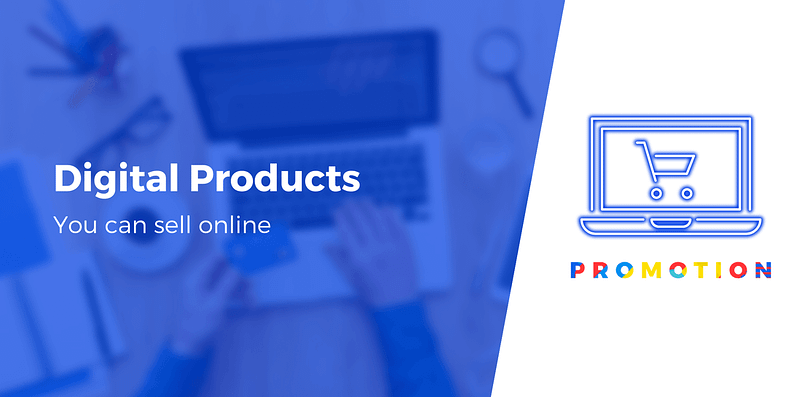
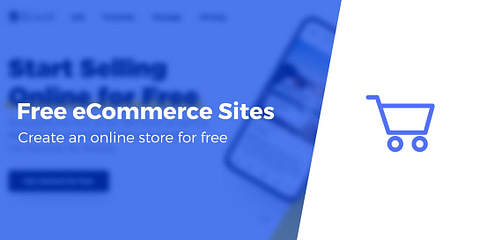



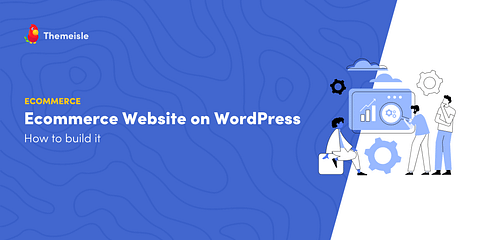
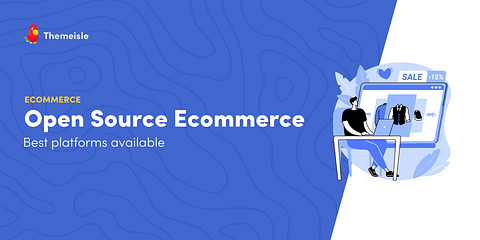
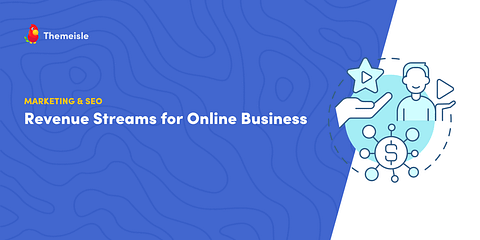
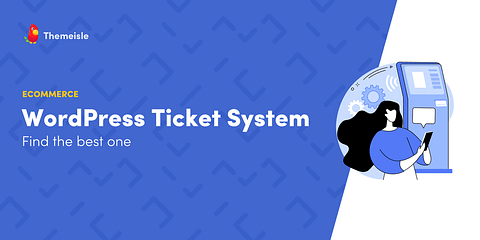


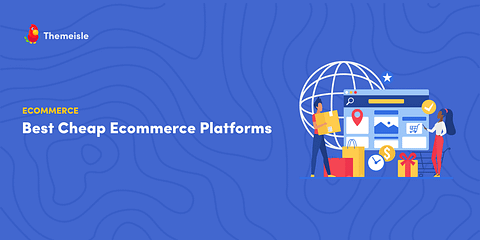
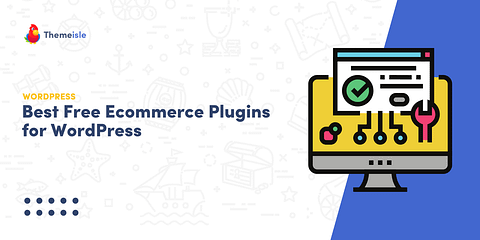
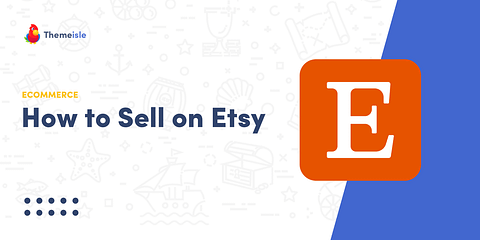
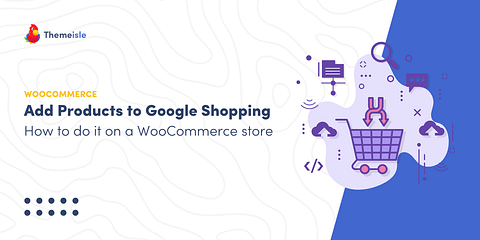
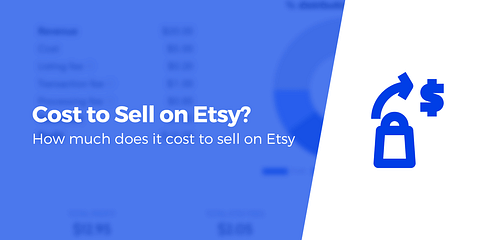
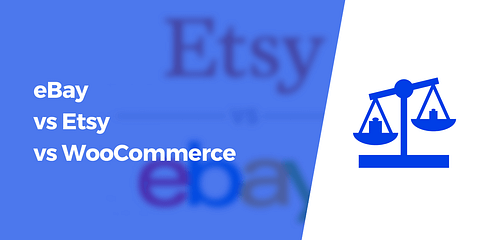
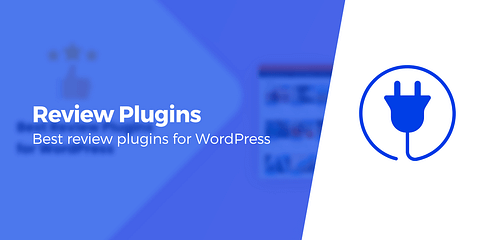

Or start the conversation in our Facebook group for WordPress professionals. Find answers, share tips, and get help from other WordPress experts. Join now (it’s free)!